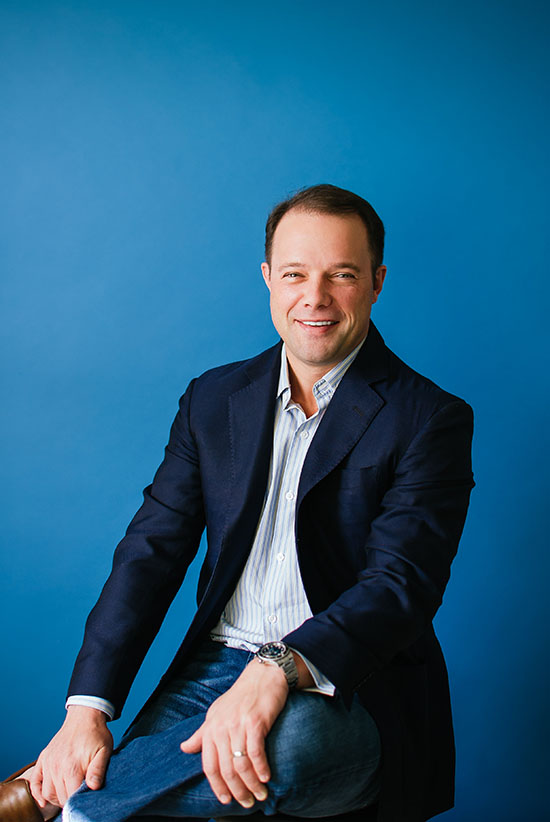
|
企業(yè)家內(nèi)部網(wǎng)絡(luò)是一個(gè)在線社區(qū),美國創(chuàng)業(yè)領(lǐng)域里最有思想、最具影響力的商界人士將在此回答關(guān)于創(chuàng)業(yè)與職業(yè)的問題。今天我們的問題是:“在做出艱難的商業(yè)決策時(shí),在什么情況下應(yīng)該相信自己的直覺?”以下為Vanderbloemen Search Group的創(chuàng)始人及CEO威廉·范德布洛門的回答。 直覺可能是當(dāng)今領(lǐng)導(dǎo)力領(lǐng)域里最熱門的流行詞。它是優(yōu)秀創(chuàng)業(yè)者的標(biāo)志——是一種別人教不會(huì)的領(lǐng)導(dǎo)品質(zhì)。領(lǐng)導(dǎo)者在什么時(shí)候應(yīng)該相信自己的直覺,又應(yīng)該在什么時(shí)候后退一步,調(diào)查更多事實(shí)? 我的工作是幫助教堂和信仰類公司尋找優(yōu)秀員工。在這個(gè)過程中,我學(xué)到了許多值得思考的重要理念: 如果直覺導(dǎo)致你偏離你的核心事業(yè),不要相信它 大膽和樂觀,是創(chuàng)業(yè)精神的標(biāo)志。但任由這些品質(zhì)控制你的行為,將讓你背離自己的使命。作為一位年輕的領(lǐng)導(dǎo)者,我經(jīng)常會(huì)產(chǎn)生一個(gè)好想法或看到一個(gè)機(jī)會(huì),“感覺到它的存在”,然后采取行動(dòng)。但最終,我意識到,我的直覺有一種強(qiáng)烈的“認(rèn)同”傾向,即便這種直覺讓我偏離中心。因各種所謂的機(jī)會(huì)而偏離軌道時(shí),我往往會(huì)對最初的決定后悔不已。與任務(wù)驅(qū)動(dòng)型組織的合作,讓我知道事業(yè)才是成功的秘訣。 你的直覺往往會(huì)帶來一些好的選擇,助你取得勝利。但正如吉姆·柯林斯的《從優(yōu)秀到卓越》第一章的標(biāo)題所說:“優(yōu)秀是卓越的大敵。”保持對使命的專注,即使在你的事業(yè)之外有光鮮亮麗的東西吸引你的眼球,也不要偏離方向。 辭退員工時(shí),要始終相信自己的直覺 我是天生的樂天派,對人充滿信心,這種天賦在過去幾年里令我受益匪淺。許多創(chuàng)業(yè)者也有同樣的品質(zhì)。但樂觀的缺點(diǎn)在于,它可能導(dǎo)致許多領(lǐng)導(dǎo)者相信,他們可以改造不再適合公司的員工。每次在辭退員工時(shí)猶豫不決,都會(huì)讓我后悔莫及。我還發(fā)現(xiàn),整個(gè)團(tuán)隊(duì)可能都已經(jīng)知道應(yīng)該讓某個(gè)人離開,但領(lǐng)導(dǎo)者往往由于自身強(qiáng)烈的樂觀精神,成為最后一個(gè)意識到這一點(diǎn)的人。推遲辭退員工的決定,最終將影響你在其他團(tuán)隊(duì)成員心目中的領(lǐng)導(dǎo)可信度。 在招聘領(lǐng)域有一句最有價(jià)值的格言:慢招人,快開人。在需要辭退員工時(shí),相信自己的直覺——并且要行動(dòng)迅速。 招聘時(shí),要相信自己的直覺,但必須核查 羅納德·里根的這句著名格言(Trust but verify),套用在根據(jù)直覺招聘員工上,再恰當(dāng)不過了。領(lǐng)導(dǎo)者通常可以在很短時(shí)間內(nèi),對他們面試的某個(gè)人產(chǎn)生感覺。我最近在讀一位CEO寫的文章,她在文章中夸耀自己有通過7分鐘面試進(jìn)行招聘的能力。在做牧師的時(shí)候,我曾經(jīng)以為自己可以迅速辨別一個(gè)人是否適合我們的公司或教堂,并且對這種能力引以為豪。 但我卻大錯(cuò)特錯(cuò)。 我本應(yīng)對某個(gè)人進(jìn)行深入調(diào)查,但我卻直接將他淘汰。我本應(yīng)進(jìn)行數(shù)百次搜索,深入研究一個(gè)人的履歷、個(gè)性或配偶等各種因素之后再做出決定,但我卻直接錄用了他。 人類是極其復(fù)雜的生物。人的內(nèi)心是混亂和復(fù)雜的。雖然優(yōu)秀的領(lǐng)導(dǎo)者能夠根據(jù)直覺產(chǎn)生初步印象,但招聘是一個(gè)充滿焦慮的過程。即便最優(yōu)秀的領(lǐng)導(dǎo)者的直覺,也會(huì)受到恐懼、痛苦、魅力和其他各種個(gè)性的影響。如前所述,在招聘時(shí),要慢慢來。代價(jià)最昂貴的招聘,無疑是招錯(cuò)了人。 有良好直覺的領(lǐng)導(dǎo)者是優(yōu)秀的領(lǐng)導(dǎo)者。但知道什么時(shí)候相信,以及如何相信自己的直覺,才能成為卓越的領(lǐng)導(dǎo)者。(財(cái)富中文網(wǎng)) 譯者:劉進(jìn)龍/汪皓 審校:任文科 |
The Entrepreneur Insider network is an online community where the most thoughtful and influential people in America’s startup scene contribute answers to timely questions about entrepreneurship and careers. Today’s answer to the question “When making a tough business decision, how do you know when to trust your gut?” is written byWilliam Vanderbloemen, founder and CEO of Vanderbloemen Search Group. Intuition may be the biggest buzzword in leadership today. It is the mark of great entrepreneurs—the un–coachable quality of leadership. When should leaders trust their guts, and when should they step back and investigate more facts? In my work helping churches and faith-based companies find great staff, I have learned a few key concepts worth considering: Never trust your gut if it takes you away from your core cause Boldness and optimism are hallmarks of the entrepreneur’s spirit. Letting these qualities take precedence, however, may deviate from the mission. Many times as a young leader I would have a great idea or see an opportunity, “feel it,” and take the leap. But I finally realized that my instinct had a strong tendency to lead with a “yes” attitude, even when it pulled me away from focus. And when the opportunity pulled me outside of the cause, I always regretted the decision later. Working with mission-driven organizations taught me that cause is the secret to success. Your gut instinct will always have some good options that could lead to a win. But, as Jim Collins titles the first chapter of Good to Great, “Good is the enemy of great.” Stay focused on your mission, even when the shiny object that leads away from your cause catches your eye. Always trust your gut when it comes to firing someone I am an eternal optimist and a big believer in people, which is a gift that has served me well over the years. Many entrepreneurs have the same quality. The downside of this optimism causes many leaders to believe they can rehabilitate an employee who no longer fits the organization. Every time I hesitated to let someone go, I regretted it. I have also come to believe that because of leaders’ fierce optimism, they are usually the last on the team to realize it is time to let someone go. Delaying the decision will eventually erode your leadership credibility with the rest of the team. If there is one axiom in hiring more valuable than any other, it’s this: Hire slowly and fire quickly. When it comes to parting ways with a team member, trust your gut—quickly. When it comes to hiring, trust your gut, but verify This famous adage by Ronald Reagan could not be truer regarding the idea of hiring from the gut. Leaders are usually able to have a feeling about someone they are interviewing in a very short time. I recently read about a CEO who was boasting about her ability to hire using seven-minute interviews. When I was a pastor, I would take pride in the belief that I could tell immediately whether or not someone would be a fit for our company or church. I was so wrong. I wrote people off who I should have further investigated. I hired people without looking deep into their histories, personalities, or spouses, among many other factors after performing hundreds of searches. People are wonderfully complex. They are terribly messy. While good leaders will be able to get an initial impression from their guts, hiring is an anxiety-ridden process. Even the best leader’s gut can be influenced by fear, pain, charisma, and a slew of other characteristics. As mentioned earlier, when you hire, do it slowly. The most expensive hire you will ever make is hiring the wrong person. Leaders with a good guts are good leaders. Leaders who learn when and how to listen to their gutsbecome exceptional. |






